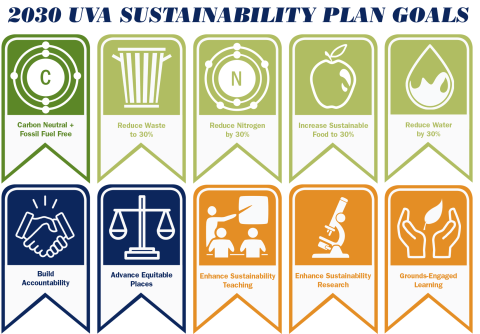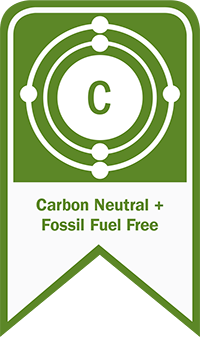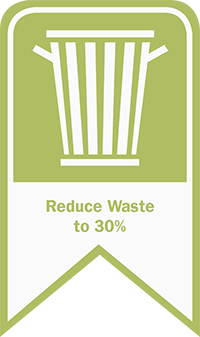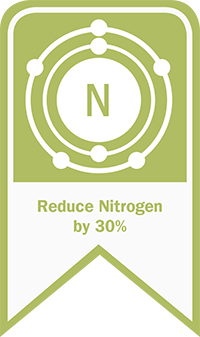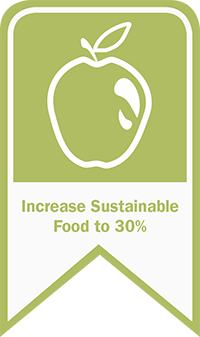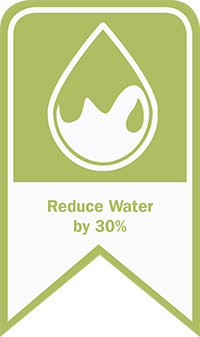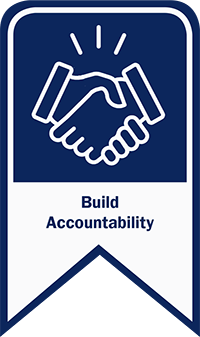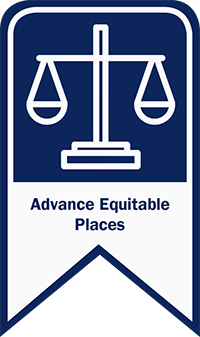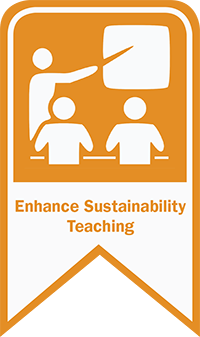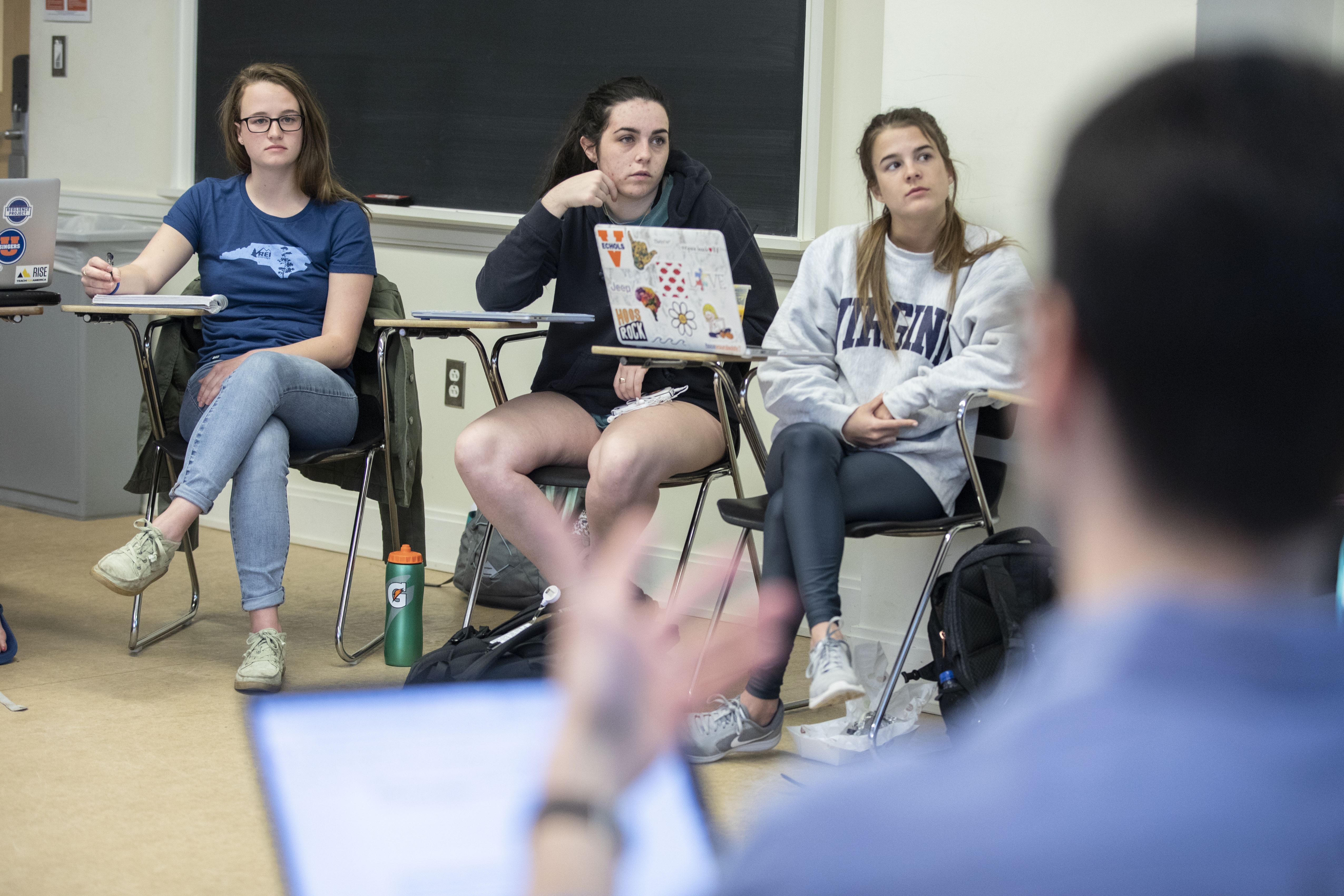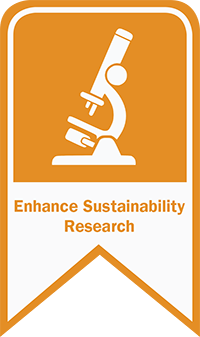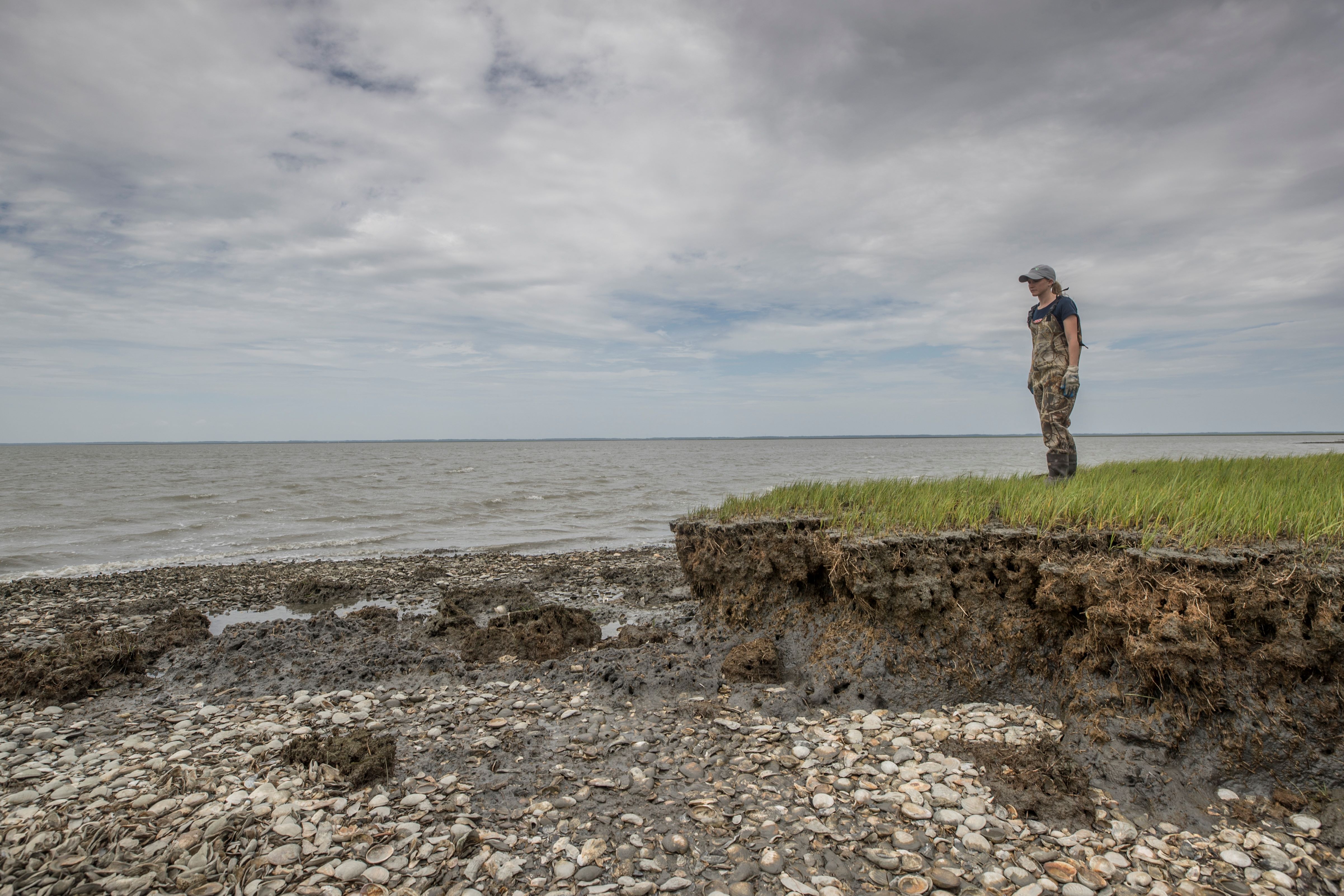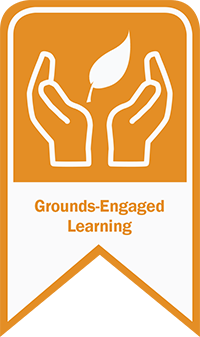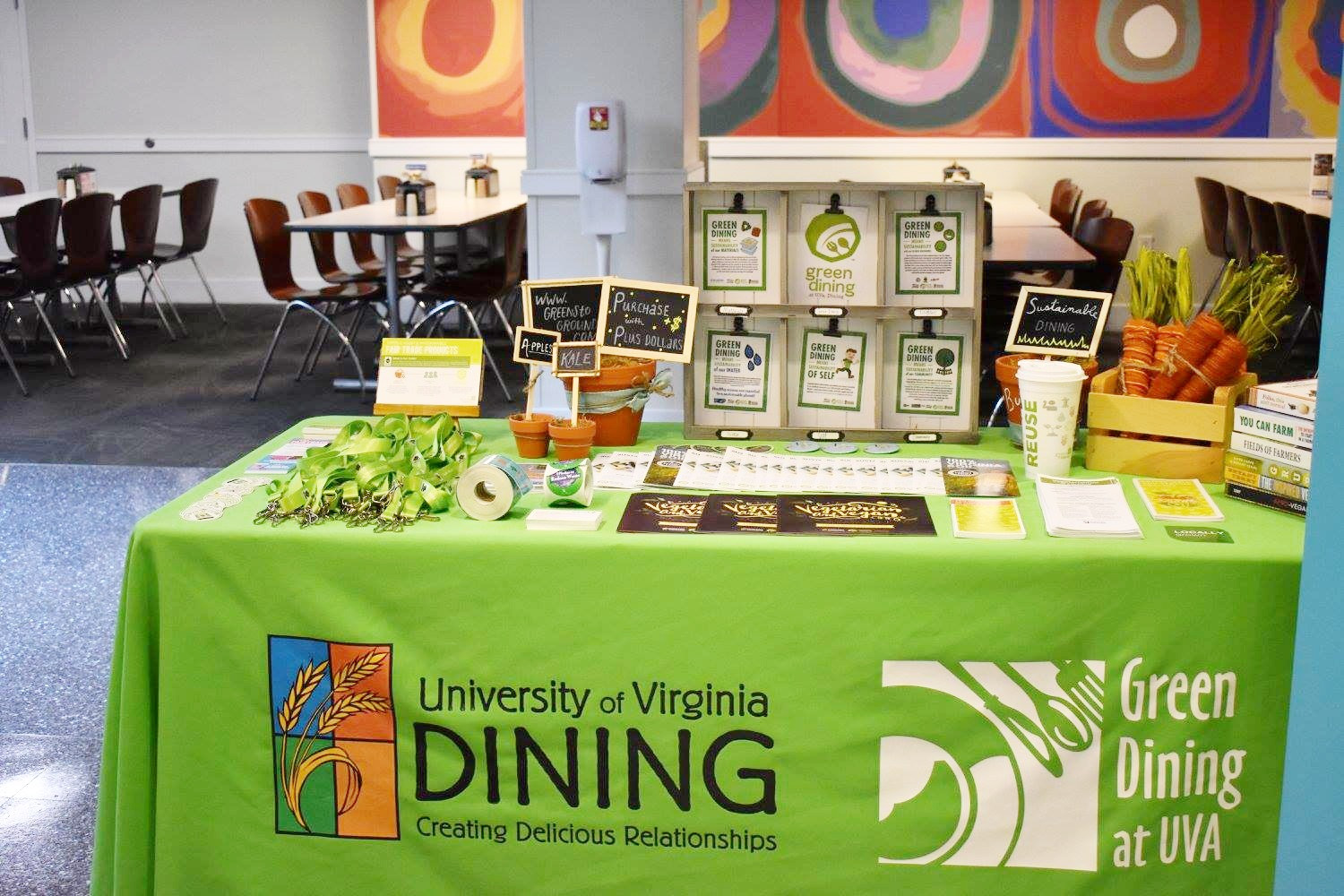
Plans & Progress
The 2030 UVA Sustainability Plan, with ten bold goals and associated strategic actions, will guide the University’s progress toward being carbon neutral in 2030 and fossil fuel free in 2050.
UVA’s approach to achieving our sustainability goals relies on interdisciplinary collaborations among operations, research, curriculum, and student teams across the University. Our approach is to ENGAGE our community in building sustainability awareness and equity, STEWARD our resources on Grounds and beyond, and DISCOVER solutions to global challenges through research, curriculum and Grounds-engaged learning.
These goals align with UVA’s 2030 Great and Good Strategic Plan and build upon the success of the Board of Visitors’ 2011 and 2013 sustainability resolutions, the first UVA Sustainability Plan (2016-2020), and the work of thousands of engaged individuals over many years.
UVA Sustainability is a pan-University endeavor to design and implement action steps on energy, food, water, nitrogen, waste, transportation and other areas to ensure the University is a safe and healthy place to live, work and study. Beyond our operations, we further strive to be a global leader in creating equitable, replicable solutions to the existential challenge of climate change.
Meeting these bold sustainability goals calls upon our passionate students, staff members and faculty to educate ourselves and others and take ownership of how we use resources. To learn how you can help bring these goals to life, visit our Take Action page.
Open each item below to learn more about UVA's goals and progress on that topic.
- Climate Action & Energy
-
As of 2022, UVA has reduced overall greenhouse gas emissions by nearly 45% from 2010 levels. We have achieved this through a variety of means including energy efficiency, offsite solar, and engaging building occupants.
Specifically UVA developed two offsite solar facilities in Virginia that provide the University with a total of 32 megawatts of power and added solar panels to six on-Grounds buildings. Check out our renewable energy production in real time at our Renewable Energy Tracker.
UVA also has a strong sustainable buildings program. To date, we have achieved 82 LEED certifications, including the College of Wise, representing over 5 million square feet of LEED certified space.
Developed five years ago, UVA’s Green Building Standards (GBS) set minimum sustainability requirements for all projects and established a process for collaboratively identifying project-specific sustainability features. The GBS support UVA’s LEED requirements (a U.S. Green Building Council sustainable building rating system) to ensure strong performance across UVA’s building portfolio.
UVA’s Building Efficiency Program has worked on 75 buildings over the past 8 years, investing approximately $2.5 million per year in energy efficiency projects. As a result, these buildings have avoided energy costs of $20.2 million over the past three years. Since its inception, UVA's Building Efficiency Program has saved UVA schools and units $70.6 million at a cost of $29.3 million, resulting in $41.3 million net savings. In calendar year 2022 alone, these 75 buildings have avoided energy costs of $5.4 million.
Overall, the University has reduced its energy consumption while also expanding our square footage to better serve our growing student population and research needs. As of fall 2023, we are completing a process to establish a climate action plan to accelerate our move toward being carbon neutral by 2030 and fossil fuel free by 2050, as well as supporting a community-wide resiliency planning process.
>> For more details, visit our CLIMATE ACTION and ENERGY pages.
- Materials & Waste
-
Reducing waste generated and reducing waste-to-landfill across 19.1 million square feet of facilities is not an easy task. UVA tackles this through a rigorous and multi-faceted approach including increasing recycling and composting, increasing procurement of more sustainable products and eliminating many single-use plastics.
We have reduced waste generated on Grounds by almost 52% from 2010 levels. In 2022 alone, the University reused, composted or recycled 24.4% of the waste generated.
>> For more details, visit our WASTE & MATERIALS page.
- Nitrogen
-
In some forms, nitrogen can be a major contributor to environmental and human health issues, including forest dieback, ozone depletion, algae blooms in waters and global warming. In 2013, UVA became the first university in the U.S. to set an official nitrogen reduction goal, and the first university in the world to release an action plan to reduce nitrogen.
The Nitrogen Working Group, under the auspices of the Committee on Sustainability’s Environmental Stewardship Subcommittee, continues to engage faculty, staff and students to address nitrogen sources from energy production, transportation, fertilizers and animals, wastewater and food.
UVA has achieved a 43.6% reduction in reactive nitrogen losses to the environment as of 2021 compared to 2010, which meets and exceeds the 2030 goal. However, these reductions are likely attributable to closures (dining and other facilities) during the COVID-19 pandemic. Growth in building square footage and population is expected to lead to an increase in the nitrogen footprint. Food-related nitrogen data is intensive to collect and calculate, so the data typically lags one or two calendar years behind.
>> For more details, visit our NITROGEN page
- Food
-
From student vegetable gardens to sourcing food from local and/or Black and Brown growers for our dining facilities, the University is supporting a sustainable food system to reduce negative environmental and social impacts from agriculture, food processing and distribution while strengthening UVA’s connection within the region.
The UVA Sustainable Food Collaborative, unique among universities, brings together all facets of the University as well as the local and regional community organizations and companies focused on sustainable food. UVA Dine is a critical partner in the collaborative.
In calendar year 2022, the University’s food and beverage combined spend at UVA Dine, UVA Health, and the Darden School of Business met and exceeded our 2030 sustainable purchasing goal of 35%, using the Advancement for Sustainability in Higher Education (AASHE) STARS criteria.
>> For more details, visit our FOOD page
- Water
-
Through a variety of means that encompass both the built and natural environment, UVA is reducing water use and improving water quality. The Facilities Management team initiates projects to reclaim water from various processes, including the University’s numerous heating/cooling chiller plants, as well as to preserve water usage in landscaping applications.
Since 2010, UVA has reduced potable water consumption by 26.2%. In 2022, we consumed 424 million gallons of water, compared to 574 million gallons in 2010.
Stormwater management is another critical part of our environmental stewardship of our University. The Clean Water Working Group, under the auspices of the Committee on Sustainability’s Environmental Stewardship Subcommittee, focuses on improving stormwater management and the sustainable use of water on Grounds.
>> For more details, visit our WATER page
- Accountability
-
UVA schools and units, with guidance from the Committee on Sustainability and support from the Office for Sustainability, are developing their own plans in alignment with the 2030 Sustainability Plan.
In 2022 the UVA Library, Miller Center, and Facilities Management created their sustainability plans.
The Athletics Department is making significant strides in greening its operations, including providing composting (in addition to recycling) at all home football games as of the 2022-23 season.
UVA Health is achieving sustainability in multiple areas, including signing on with the national Practice Greenhealth network in 2022 and UVA School of Nursing joined the Nurses Climate Challenge, which provides resources to educate clinicians about the health impacts of climate change. .
In 2023, UVIMCO gathered more in-depth insights on their managers’ ESG policies, deepened engagement with external managers, undertook extensive efforts to measure and assess the carbon footprint of UVA’s portfolio and continued investing in climate solutions across multiple asset classes.
In addition, UVA has achieved STARS Gold Certification from the Association for the Advancement of Sustainability in Higher Education and was recognized by the Princeton Review as one of the nation’s most environmentally responsible colleges.
>> For more information on these efforts, visit our PROGRAMS & SERVICES page
- Equity & Community
-
To address the global climate challenge, collaboration with stakeholders from all sectors from the local to international level is crucial. Equally important is advancing environmental and climate justice.
UVA Sustainability works with a range of partners to achieve these goals, including other higher education institutions, UVA affiliates like the Environmental Institute, The Equity Center, the Institute for Engagement and Negotiation, the Repair Lab and others. In addition, the UVA Office for Sustainability is part of the Climate Action Together partnership with the City of Charlottesville and Albemarle County.
The Equity & Environment Fund, under the auspices of the UVA Committee on Sustainability’s Civic Engagement Subcommittee, focuses on student learning opportunities at the intersection of environmental sustainability and social justice. To date the fund has dispersed over $100,000 in grants for more than 40 projects.
In 2023, the UVA Equity and Environment Fund awarded $14,500 in grants to seven UVA and local organizations.
>> For more information on these efforts, visit our ABOUT and TAKE ACTION pages.
- Curriculum
-
Although not always explicit, sustainability intersects with each major at UVA, and we aim to integrate our typical curriculum choices with sustainability-oriented courses. Every undergraduate student at UVA should be able to relate their major to sustainability.
As of the fall of 2022, UVA had more than 370 courses, more than 250 research initiatives, more than 30 student groups, more than 100 annual events and dozens of programs all related to sustainability.
>> For more information on these efforts, visit our CURRICULUM page
- Research
-
In labs and classrooms across Grounds, UVA researchers are making remarkable advances in our understanding of energy systems, climate change and impacts on the human population and the environment, and designing innovative, scalable solutions.
In the Office of the Vice President for Research, one of the five chosen priority areas is Environmental Resilience and Sustainability.
UVA’s Environmental Institute (EI) is recognized internationally for leading cutting-edge research on these issues, with a strong focus on sea level rise impacts and equity. EI gave seed funding for 13 projects from 4 schools, including a grant to assess building resiliency after the earthquakes in Turkey and Syria; received $5 million in funding from the National Science Foundation for a second EI team working on climate resilience in coastal Virginia; and awarded internships for over 20 students with government, non-profit, and private sector partners.
>> For more information on these efforts, visit our RESEARCH page
- Grounds-engaged Learning
-
Connecting academics and operations is a unique strength of higher education to lead and innovate sustainability solutions. At UVA, faculty, students and staff partner on a range of experiential projects in several courses to connect global ideas to local implementation, strengthening both curricula and the stewardship of Grounds.
The Decarbonization Academy, launched in the summer of 2022 under the Committee on Sustainability’s Teaching and Research Subcommittee. The academy paired students who want hands-on learning experiences with faculty and staff to design a range of projects geared specifically toward helping the University achieve its goals of being and carbon neutral by 2030 and fossil fuel free by 2050.
UVA and the UVA Foundation announced that the Morven Farm property will move forward as a UVA "Morven Sustainability Lab" under UVA professor Elizabeth K. Meyer as faculty director. An advisory committee led by Meyer is drafting an implementation plan for the next 10 years with community-wide involvement.
>> For more information on these efforts, visit our GROUNDS AS LIVING LAB page


